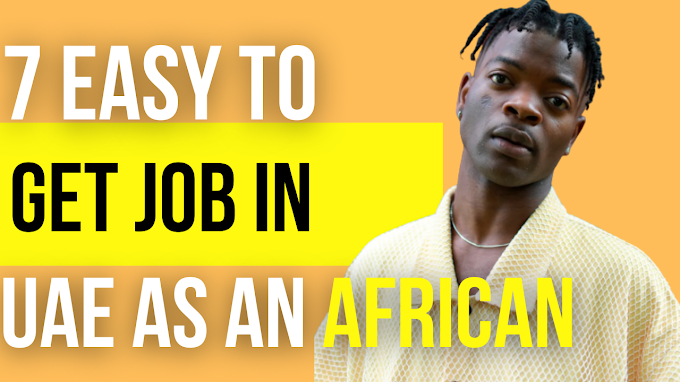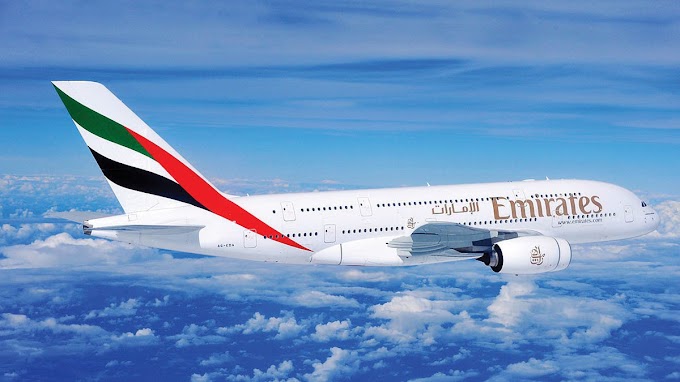
This is a Comprehensive Guide to Moving from Dubai to Ireland.
The glittering towers of Dubai may hold a certain allure, but for some, the call of rolling green hills, charming villages, and a pint by the fire beckons even stronger. If you're dreaming of trading the desert sands for the Emerald Isle, this detailed guide will equip you with the knowledge and resources to navigate your move from Dubai to Ireland smoothly.
Part 1: Visas - Your Gateway to Ireland
Obtaining the right visa is the first and most crucial step in your Irish adventure. As a UAE resident, you'll most likely require a long-stay visa (D visa). Here's a breakdown of the various types and the application process:
Work Visas:
Requirements:
Valid job offer from a registered Irish company with a proven track record of employing non-EU workers.
The position must be deemed unavailable to a suitably qualified EEA national after a fair and transparent recruitment process.
You must meet the minimum salary threshold set by the Department of Enterprise, Trade and Employment.
Proof of qualifications and experience relevant to the offered position.
Process:
Your employer will typically sponsor your work visa application. They'll initiate the process with the Irish immigration service and provide you with a reference number.
You'll then need to submit a detailed application form along with supporting documents like your passport, CV, qualifications, proof of funds, and medical report.
Fees associated with the application will need to be paid at this stage.
Processing Time: Varies depending on individual circumstances, but generally takes 8-12 weeks.
Additional Resources:
Department of Enterprise, Trade and Employment: https://enterprise.gov.ie/en/
Irish Immigration Service: https://www.irishimmigration.ie/
Study Visas:
Requirements:
Valid offer of a full-time course from a recognized educational institution in Ireland.
Proof of sufficient financial resources to support yourself during your studies. This typically involves bank statements and evidence of scholarships, if applicable.
Private health insurance is mandatory.
Process:
Apply online through the Irish Immigration Service website.
Gather required documents like your passport, acceptance letter, proof of funds, medical insurance details, and academic transcripts.
Visa application fees apply.
Processing Time: 4-8 weeks on average.
Family Reunification Visas:
Requirements:
You must be an Irish citizen or hold a valid Irish immigration permission that allows you to reside in Ireland.
You must be in a genuine relationship with the family member you're joining (e.g., spouse, civil partner, dependent child).
Proof of adequate accommodation and financial resources to support yourself and your family in Ireland.
Process:
The Irish citizen or resident family member in Ireland will submit an application on your behalf.
Prepare supporting documents like marriage certificate, birth certificates of children, proof of accommodation, and financial statements.
Visa application fees apply.
Processing Time: Varies depending on individual circumstances but can be lengthy (several months).
Part 2: Beyond the Visa - Practical Considerations
Obtaining a visa is just the first hurdle. Here's a deep dive into the practical preparations you need to make for your move:
Cost of Living:
While generally lower than Dubai, Ireland's cost of living can vary significantly depending on your location. Dublin, the capital city, is the most expensive place to live. Here's a breakdown of some key areas:
* **Accommodation:** Renting a one-bedroom apartment in Dublin can cost anywhere between €1,000-€2,000 per month, while smaller cities like Galway or Cork might be slightly cheaper.
* **Utilities:** Expect to pay around €150-€200 per month for utilities like electricity, water, and internet.
* **Groceries:** Groceries are generally more affordable than Dubai, but keep in mind some imported items might be pricier.
* **Transportation:** Public transport in Ireland, particularly in Dublin, is efficient. Monthly passes can range from €80-€120. Owning a car adds fuel costs and car insurance expenses.
Budgeting Tip: Thoroughly research average living costs in your chosen city to create a realistic budget for your move.
Emerald Isle Adventure: A Comprehensive Guide to Moving from Dubai to Ireland (continued)
Part 2: Beyond the Visa - Practical Considerations (continued)
Finding a Place to Call Home:
Starting your housing search early is crucial, especially if you're aiming for Dublin. Here are some resources and strategies to help you secure suitable accommodation:
* **Online Portals:** Popular websites like daft.ie, MyHome.ie, and Rent.ie list rental properties across Ireland. You can filter your search by location, price range, property type (apartment, house), and amenities.
* **Letting Agents:** Letting agents manage rental properties on behalf of landlords. They can be helpful for finding suitable options and navigating the application process, but their services typically come with fees.
* **Social Media Groups:** Facebook groups dedicated to finding accommodation in specific Irish cities can be a valuable resource. Locals and expats often post rental listings or leads on these platforms.Temporary Accommodation:
Finding a permanent place to live can take time, so consider securing temporary accommodation for the initial weeks or months after your arrival. Here are some options:
* **Short-Term Rentals:** Platforms like Airbnb and Booking.com offer furnished apartments and studios for short-term stays. This can be a good way to explore different neighborhoods before committing to a long-term lease.
* **Hostels:** While not ideal for an extended period, hostels provide affordable, shared accommodation and are a great way to meet fellow travelers and potential roommates.
* **Serviced Apartments:** Serviced apartments offer hotel-like amenities like housekeeping and laundry services, making them a comfortable option for a short stay.Important Note: The Irish rental market is competitive, so be prepared to act quickly on promising leads. Having your documents (passport, proof of employment/income, references) readily available can expedite the application process.
Healthcare:
Ireland has a public healthcare system (HSE) funded by the government. However, waiting lists for non-urgent procedures can be long. Here's what you need to know:
* **General Medical Services (GMS) Card:** This card grants access to free GP (General Practitioner) visits, basic medical tests, and referrals to specialists within the public system. You can apply for a GMS card after registering with your local GP.
* **Private Health Insurance:** While not mandatory, private health insurance provides quicker access to specialists, shorter waiting times for procedures, and potentially better coverage for treatments. Consider getting private health insurance, especially if you have any pre-existing medical conditions.Part 3: Embracing the Emerald Isle
Moving to a new country goes beyond logistics. Here's how to embrace the unique culture and way of life Ireland offers:
Understanding Irish Culture:
Irish culture is rich in history, storytelling, and tradition. Here are some ways to immerse yourself:
* **Explore Local History:** Visit historical sites like castles, museums, and archaeological sites to learn about Ireland's fascinating past.
* **Experience the Arts:** From traditional Irish music sessions (ceilidhs) to vibrant theater and film scenes, Ireland has a thriving artistic landscape.
* **Learn the Language:** While English is widely spoken, learning a few basic phrases in Irish (Gaeilge) will be appreciated by locals and enhance your cultural experience.Settling In:
Here are some tips to help you adjust to your new life in Ireland:
* **Making Friends:** Join local clubs or groups based on your interests. This is a great way to meet people and build a social network.
* **Exploring the Countryside:** Ireland's stunning natural beauty is a major draw. Take day trips or weekend getaways to explore national parks, hiking trails, and charming coastal towns.
* **Embracing the Pace of Life:** Life in Ireland is generally more relaxed than in Dubai. Take time to appreciate the slower pace and enjoy the simple pleasures.Additional Resources:
Irish Tourist Board: https://www.discoverireland.ie/
Irish Government Website: https://www.gov.ie/
The Expat Forum: https://www.expatforum.com/ (Connect with other expats in Ireland)
Part 4: Conclusion
Moving from the dazzling desert to the lush landscapes of Ireland is a chance to explore a new way of life. With thorough planning, a touch of excitement, and the information provided in this comprehensive guide, you can make this dream a reality. Remember, embracing the challenges and opportunities that come with adapting to a new culture will be key to a successful and enriching experience in the Emerald Isle.











